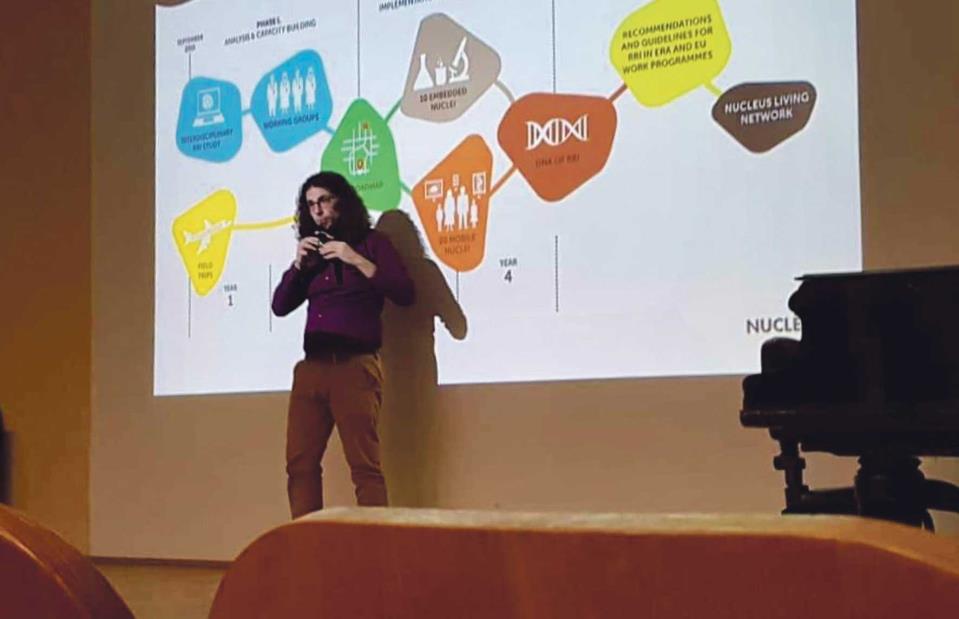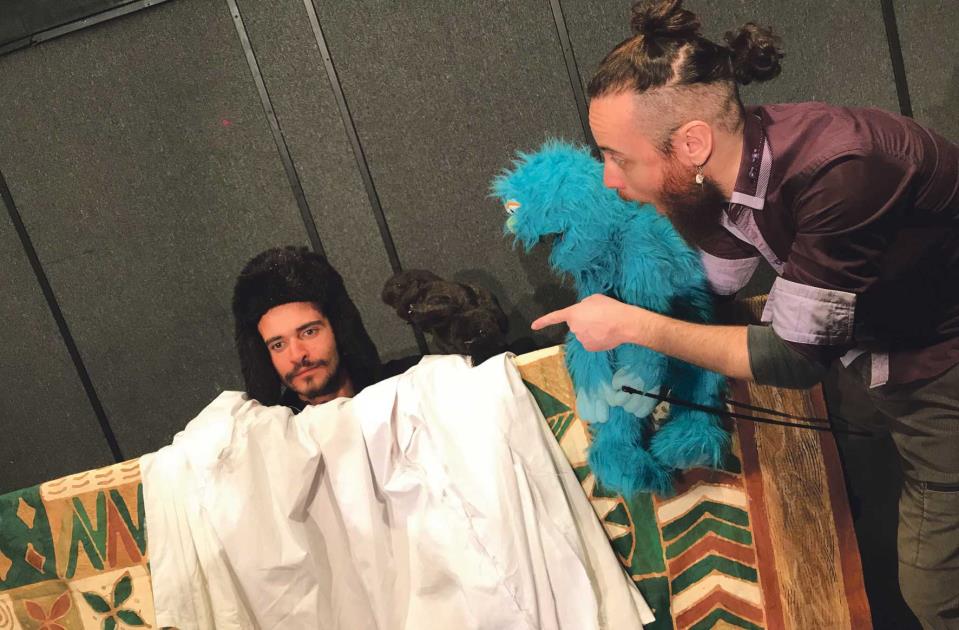Kids went wild this December for Maltese scientists and actors from the troupe 'Kids Dig Science' who built their shows at the Science in the City festival and throughout the year at Spazju Kreattiv. Their creative and interactive puppet theatre in Moscow engaged Russian elementary school children with scientific concepts.
The actors, Sean Briffa and Jeremy Grech combined puppet theatre with science for over a hundred children at Cambridge International School and at Innopark Interactive Science Museum in Moscow, Russia last week. In the play, Billy the Beaver needed to build a dam which kept falling due to mysterious trembling. With the help of two seismologists, he recruited the famous scientist Jacob-a very blue puppet. Together they went on an adventure to the centre of the Earth to discover what it is made up of and what movements lead to it cracking like an egg shell and shaking to devastating effect.

On the fringes of the two performances, the two Maltese scientists, seismologist Dr Matthew Agius and science and innovation communication lecturer Dr Edward Duca, (University of Malta) spoke to leading researchers from the Schmidt Institute of Physics of the Earth of the Russian Academy of Sciences. Agius and Duca exchanged views on how to foster relations and exchanges between the Department of Geosciences (University of Malta) and the Schmidt Institute of Physics of the Earth, which is one of the most prominent centres in Russia in the field of geophysics.

Agius spoke about cutting edge research from Malta including digital mapping of historical sites, seismic monitoring, tsunami modelling and disaster mitigation. He also studied the Mid-Atlantic Ocean and the Hawaiian Islands, as part of an international scientific team. Such work is fuelled by international collaborations and funding.

Duca explained several EU funded projects under the framework of Horizon 2020 that benefit the University of Malta. He mentioned a range of creative and innovative initiatives that are communicating science to Maltese citizens through the arts, especially with projects like the Science in the City festival. Duca also spoke about a large Horizon 2020 project called NUCLEUS which is studying how to bring society closer to researchers at the University of Malta-approaches that resonated interest from the Russian scientists.
The project was organised by the Embassy of the Republic of Malta and the Ministry for Foreign Affairs and Trade Promotion under the Cultural Diplomacy Fund 2018.